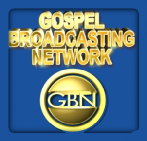

Services
Sunday A. M. Bible Study -
Sunday A. M. Worship -
Sunday P. M. Worship -
Wednesday Evening Bible Study -
Address
700 Mill Street
Mt. Vernon, Indiana 47620
Gospel Plan of Salvation
Hear -
Believe -
Repent -
Confess -
Be baptized -
Live faithfully -





The great apostasies of the first, second, and third centuries were followed by attempts at reformation and restoration of the Lord's church. As Everett Ferguson in his book, The Church of Christ, states, "On the day of Pentecost God's gathered-
Great men have spoken out in defense of the New Testament as our only authority for the way God's "gathered-
The Reformers in the 16th and 17th centuries worked on reforming the Roman Catholic church. Their energies were spent in reorganizing and restructuring that existing false religion. None of them seemed to realize that the New Testament (apostolic teaching) is the authority for God's people, so they continued their attempts at restructuring until the confusion was total. J. M. Powell, in his book, Sketches of Leaders in the Restoration Movement, pointed out; "The Restoration came with a force and vigor which shook the foundations of the Christian world. It came with a message that swept the land." In the midst of proliferating and divided denominational confusion, it proposed breaking down all denominational walls, abandoning all human creeds and, on apostolic teaching only, reproducing the holy pattern of God's church as it was in the beginning,
Abner Jones, James O'Kelly, James Foster, Barton W. Stone, John Thompson, Richard McNemar, John Dunlavy, Robert Marshall, Thomas Campbell, Alexander Campbell, Walter Scott (these latter three were largely influenced by the Haldane brothers of Glasgow, Scotland)—these men and many others, seeing the confusion and contradictions of the denominational world and its crystallized sectarian bias, became convinced that they owed their allegiance to God and to the apostles' teaching alone, rather than to the traditions and teachings of men.
Thomas Campbell, at first licensed by Presbyterian officials upon coming to the USA in 1807, was soon forbidden to preach in their buildings because he was determined to adhere strictly to Holy Scripture. However, people began to rally around the Truth he preached. In one meeting in which he addressed them they discussed their future course. He spoke of the divided conditions in religion and exalted the Bible as the all-
Alexander Campbell had never thought seriously of participating in a religious debate. He objected to debates because he noticed that, in most cases, the disputants sought personal victory rather than a victory for the Truth. In the winter of 1819, Campbell began receiving letters from John Birch to come to Mt. Pleasant, Ohio, and debate a Presbyterian, John Walker. He was reluctant to go, but after additional pleas he finally agreed. The debate took place near Mt. Pleasant on June 19 and 20, 1820. The debate was on the subject of baptism, including the action involved. When the debate ended, Campbell was so convinced of its worth that he issued a general challenge to debate any Pedobaptist preacher of any denomination.
This initial debate was followed by others with W. L. McCalla, Presbyterian (May 1823), Robert Owen, Skeptic (April 13, 1829), Bishop Purcell, Roman Catholic (January 13, 1837), and N. L. Rice, Presbyterian (Nov. 15, 1843). Also, Walter Scott, Rice Haggard, Barton W. Stone, John T. Johnson, Samuel Rogers, G. W. Elley, Jacob Creath, "Raccoon" John Smith, and others all publicly defended the Truth in that same era.
Our English word, debate, is from the French debatre—to beat. The KJV has debate in Proverbs 25:9, Isaiah 27:8, 58:4, Romans 1:29, and 2 Corinthians 12:20, in the sense of strife and violence. In Acts 17:2, however, Luke uses another word, dielexato—to reason: "And Paul, as his custom was, went in to them, and for three sabbath days reasoned with them from the Scriptures."
True Gospel preachers, from the first century, to those mentioned above in the 18th century, and to the present, have "reasoned with them from the Scriptures" as they have participated in religious debates, rather than trying to "win the victory" for themselves. Their aim has been, by the exposition of Holy writ, to show clearly what the Book of God teaches on any given subject, making public discussions always profitable. We can gain a clearer view of the effect of public debate in which 20th century brethren have participated by looking at some of those notable discussions.
Division of the church over instrumental music in worship and the missionary society was so complete by 1910 that it was recognized by the federal census of that year. The faithful congregations in middle Tennessee found a rallying point in F. B. Srygley and The Gospel Advocate. By 1922, in middle Tennessee and northwest Alabama, only about one congregation in fifty among the churches of Christ used an instrument in their worship.
That year the digressive churches began circulating a book by O. E. Payne, asserting that the Greek word translated "sing" not only allows, but demands, the use of an instrument. On May 18,1922, Srygley, editor of The Gospel Advocate, wrote a scathing answer to the book (a copy of which had been sent to him by John B, Cowden of the digressive movement). As the result of a protracted and lengthy correspondence over the next year, the Boswell-
The digressives (some preferred calling them "liberals") swept the Northwest and the Midwest, but because of the men like Srygley, David Lipscomb, N. B. Hardeman, and many other sound men, in congregations in a large area—middle Kentucky, middle Tennessee, and northwest Alabama—remained firmly committed to apostolic doctrine,
Space limitations forbid elaboration on other debates such as the Hardeman-
In conclusion, the following memories are of a debate in which Eugene Clevenger engaged with a Southern Baptist preacher in Hendersonville, Tennessee, about fifty years ago. This writer was a young preacher who had studied first-
Cal Arquitt, first published in the 2003 Gospel Journal

